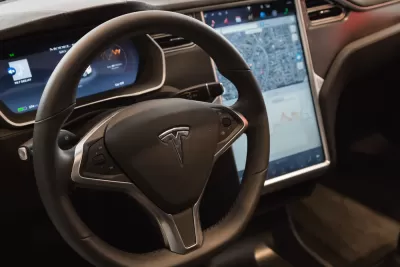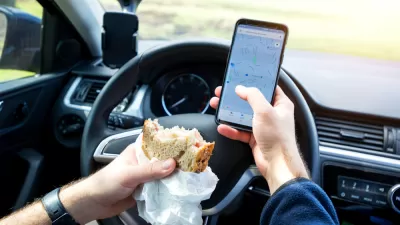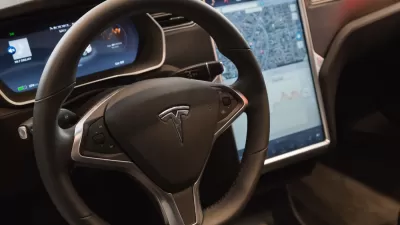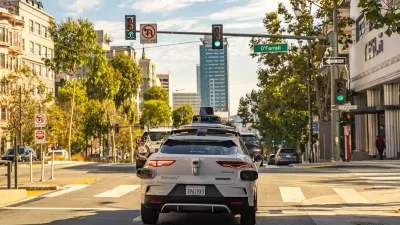In the wake of multiple fatal crashes involving Tesla's self-driving mode, ethicists suggest the need for a robust set of regulations governing the testing of AVs before more of them hit the road.

Tesla, which "has been offering customers access to a 'Full Self Driving' beta software, allowing Tesla owners to effectively become guinea pigs for the company's tech" for years, "is now under investigation by the National Highway Traffic Safety Administration (NHTSA) for several crashes where the Autopilot system was engaged." James McCandless reports on new research "that explores the intersection of human behavior and automated driving features in production and future vehicles."
According to Dr. Bryan Reimer, research scientist at the MIT Center for Transportation, "the push towards autonomous driving is a balancing act between what autonomous vehicles can do versus what a driver is capable of doing in conjunction with that technology. The goal is to take some of the more routine driving tasks out of the hands of the driver." Because humans, by nature, tend to become over-reliant on automation, "Reimer says that autonomous systems should be seen as a collaborative part of driving in helping drivers make moment-to-moment decisions." But drivers using Tesla's Autopilot and Full Self Driving modes "have become less attentive on average," leading to the multiple crashes seen in the last year. To Reimer, these repeated incidents raise ethical questions about the efficacy of 'self-driving' modes. "Once we understand a situation," he says, "it becomes foreseeable misuse." Reimer suggests a more cautious approach to autonomous testing and a need for "third-party validated scientific data."
"[T]he uneven nature of autonomous vehicle testing is partly down to the absence of a relevant regulatory environment." According to Reimer and Dr. Nicholas Evans, professor of philosophy at University of Massachusetts-Lowell, autonomous cars need "a regulatory body similar to the Food and Drug Administration (FDA) that can oversee the development of these technologies and insure that they're being safely tested and used."
The benefits of increased oversight, says Evans, "outweigh any reductions of speed in testing cycles," and "there should be more dialogue about the ethical implications of who is affected by more self-driving vehicles on the road and the unintended consequences."
FULL STORY: Ethical Standards for Self-Driving Car Testing Are Still in Their Beta Stage

Alabama: Trump Terminates Settlements for Black Communities Harmed By Raw Sewage
Trump deemed the landmark civil rights agreement “illegal DEI and environmental justice policy.”

Planetizen Federal Action Tracker
A weekly monitor of how Trump’s orders and actions are impacting planners and planning in America.

The 120 Year Old Tiny Home Villages That Sheltered San Francisco’s Earthquake Refugees
More than a century ago, San Francisco mobilized to house thousands of residents displaced by the 1906 earthquake. Could their strategy offer a model for the present?

In Both Crashes and Crime, Public Transportation is Far Safer than Driving
Contrary to popular assumptions, public transportation has far lower crash and crime rates than automobile travel. For safer communities, improve and encourage transit travel.

Report: Zoning Reforms Should Complement Nashville’s Ambitious Transit Plan
Without reform, restrictive zoning codes will limit the impact of the city’s planned transit expansion and could exclude some of the residents who depend on transit the most.

Judge Orders Release of Frozen IRA, IIJA Funding
The decision is a victory for environmental groups who charged that freezing funds for critical infrastructure and disaster response programs caused “real and irreparable harm” to communities.
Urban Design for Planners 1: Software Tools
This six-course series explores essential urban design concepts using open source software and equips planners with the tools they need to participate fully in the urban design process.
Planning for Universal Design
Learn the tools for implementing Universal Design in planning regulations.
Clanton & Associates, Inc.
Jessamine County Fiscal Court
Institute for Housing and Urban Development Studies (IHS)
City of Grandview
Harvard GSD Executive Education
Toledo-Lucas County Plan Commissions
Salt Lake City
NYU Wagner Graduate School of Public Service





























